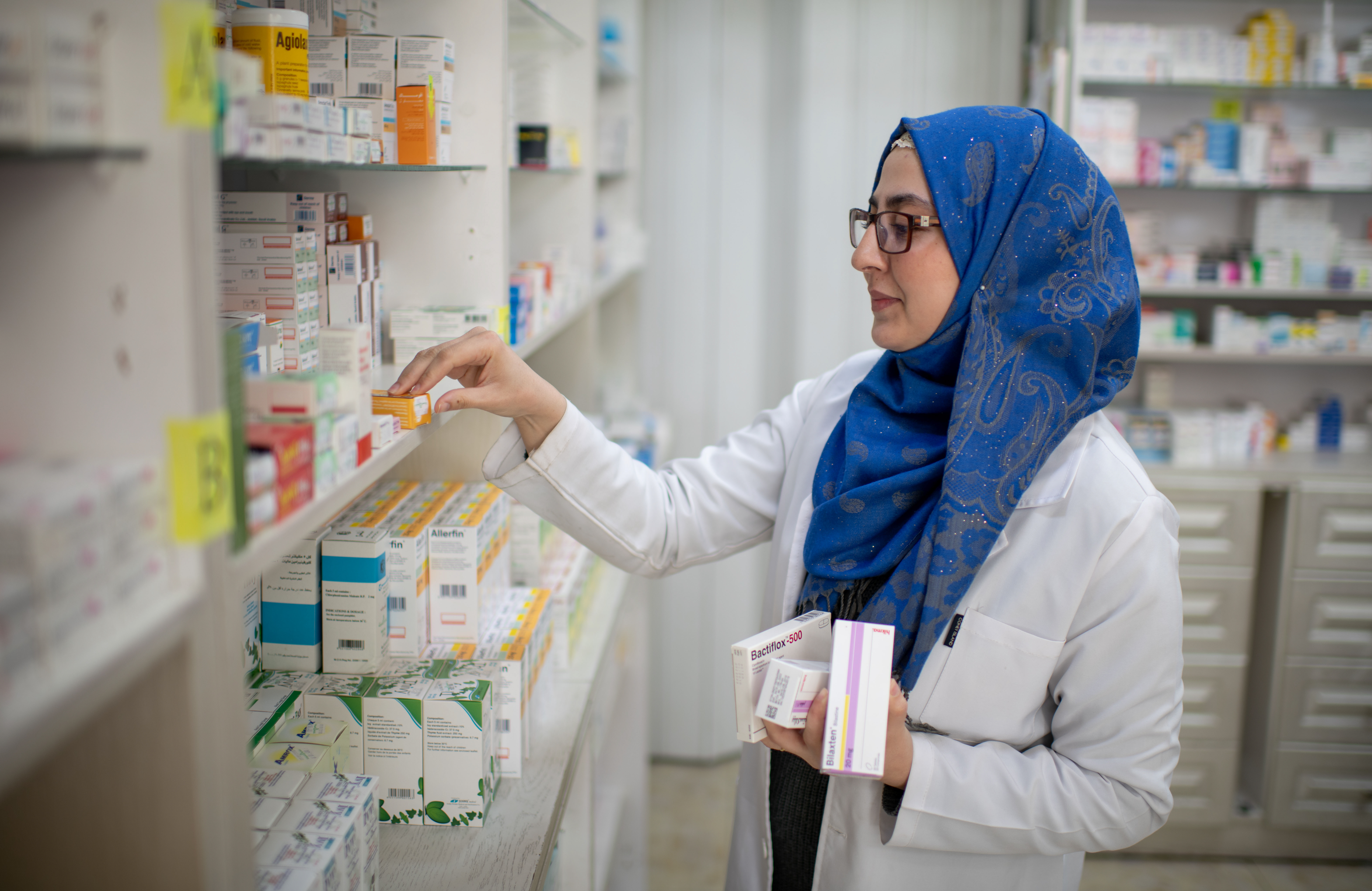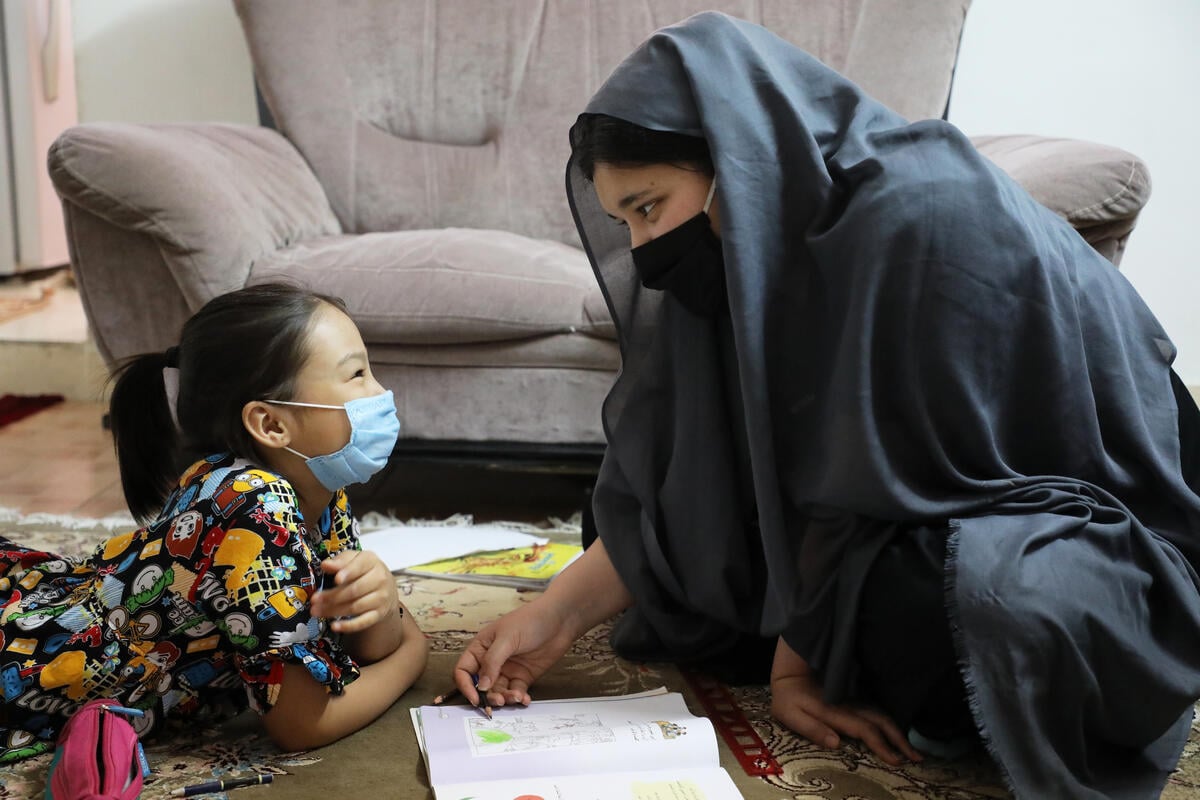Public health
Public health
UNHCR works with governments and partners to provide emergency health care, improve local health services and include refugees in national health systems and plans.

Good health is an essential requirement for refugees to be able to rebuild their lives. Yet years or decades of forced displacement can take a significant toll on an individual’s health and wellbeing.
UNHCR’s public health programming supports refugees so they can be as healthy as possible. UNHCR works with governments and partners to provide emergency health services, improve local health services and include refugees in national health systems and plans.
The right to health exists for all people, including refugees. The right to health means that all of us can access affordable essential health services when and where we need them. Many refugees, however, face tremendous obstacles in meeting their health needs.
Our approach to public health is in line with the Global Compact for Refugees. Where national services are unavailable or unable to cover additional needs, we prioritize working with governments to improve health services and include refugees in national health systems and plans.
How does UNHCR help improve the health and wellbeing of refugees?
We strive to improve the health and wellbeing of refugees by addressing the full spectrum of their needs. We begin by approaching public health from multiple angles, including advocacy for inclusion into health policies and systems, increased access to healthcare, nutrition, water, sanitation and hygiene (WASH) services, promotion of healthy living and collection and analysis of health data. We have over 140 partners in governments, ministries of health, UN agencies, NGOs, academia and the private sector. Interagency collaboration is adapted on a country-by-country basis according to the level of existing care available and refugee needs. Through our advocacy, programming and partnerships, many refugees and host communities can access safe, effective, equitable and affordable health services.
Learn more:
- Public Health and Nutrition in Operationalizing the Global Compact for Refugees
- Framework of priorities and principles to promote the health of refugees and migrantsLink is external (external link)
- Annual Public Health Global Review - 2021
- UNHCR Global Public Health Strategy 2021-2025 | French version
Our core programming in public health is broken down into six principal areas:
- Access to Healthcare - Wherever possible, we aim to help refugees access health services through existing national health systems. We advocate for refugee healthcare inclusion directly with governments, NGOs, local partners and communities. We also fund and supply medicines and equipment to national health systems or partners to provide primary and secondary healthcare services.
- Mental Health and Psychosocial Support (MHPSS) - We provide technical guidance, training and essential medicines for treating refugees with mental health and neurological conditions. We advocate for mental health screenings in primary healthcare visits. We also weave psychosocial support into health, protection, education and sports programming.
- Sexual and Reproductive Health & HIV - We provide guidance and training on maternal and newborn care, contraception and family planning. We also guide and build clinical care capacity for survivors of rape and intimate partner violence and support HIV management.
- Nutrition and Food Security - Our Standardized Expanded Nutrition Survey (SENS) assesses refugees' nutrition status and identifies ways to improve outcomes. Working closely with partners, we design targeted nutrition programs for refugees. Our registration and biometrics systems support partners' food distribution and cash assistance.
- Water, Sanitation, and Hygiene (WASH) – We build water supply and treatment systems to ensure sufficient quantity of safe drinking water. We fund the construction of sanitation facilities that capture and contain harmful pathogens. We provide soap, cleaning products, and feminine hygiene products to women and girls so they can manage their menstruation with privacy and dignity.
- Strategic Health Information – Our multiple surveys and databases collect and store refugee health, nutrition and WASH data. We analyze and use this data with governments and partners to monitor health issues and needs and advocate for healthcare planning and policy decisions.
What are the main health needs of refugees?
The health needs of refugees depend on many factors: pre-existing conditions and the state of healthcare in their country before fleeing, the length and conditions of their displacement and their access to health services in their host country. Health needs can be acute, such as emergency obstetric care, or chronic such as diabetes.
Before displacement, many refugees live in countries experiencing humanitarian crises. During the journey out of their country, refugees may face harsh or dangerous conditions that have severe consequences for their physical and psychological wellbeing. Arriving in their new host country, refugees often do not have access to affordable health services. They may not be able to visit health providers, get medicines and medical supplies, laboratory tests and other life-sustaining health services due to distance, safety, language, policy, or financial barriers. Treatment for ongoing conditions, including noncommunicable diseases and malnutrition, is often interrupted. Refugees may have to live with serious injuries, like broken bones, without medical help.
Based on UNHCR’s Integrated Refugee Health Information System (iRHIS) data from 20 countries in 2019, the three top causes of morbidity amongst refugees were malaria (17%), upper respiratory tract infections (18%) and lower respiratory tract infections (6%). The top three causes of death in refugee children under five are neonatal deaths (31%), malaria (8.3%) and lower respiratory tract infections (5.6%).
Do refugees get free healthcare?
Fundamentally, all people, including refugees, have the right to access the highest available standard of care without experiencing financial hardship.
Refugee access to national healthcare systems depends on the policies of the host country. In some countries, refugees can access national health systems and services under the same conditions as nationals. This can mean that healthcare costs could be subsidized, reduced, or free (notably during an emergency). In other countries, refugees can only access national health services as foreigners (often meaning at a higher cost). There are also several host countries where refugees are not able to access national healthcare due to national policies or geographical inaccessibility. The costs for private healthcare in these countries are often prohibitive and act as a financial barrier to accessing healthcare.
UN Sustainable Development Goal 3Link is external aims to ensure healthy lives and promote wellbeing for people of all ages, in part through universal health coverageLink is external. Universal health coverage enables people to experience sufficient quality and affordable healthcare. It should cover promotive, preventive, curative, palliative and rehabilitative essential health services.
We advocate for the full inclusion of refugees into national health systems in line with the goal of universal health coverage. Full inclusion is the most sustainable and cost-effective public health model with the best results for refugees and host communities.





